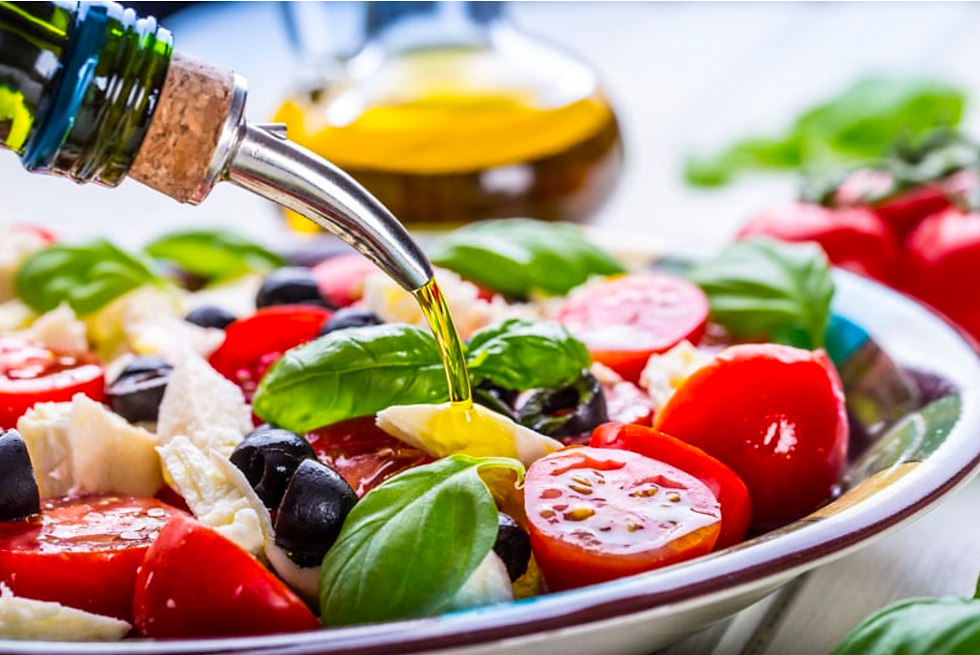Russia’s Impact on Food Accessibility in Ukraine: The Past and Present
- Sierra Winner
- Feb 4, 2024
- 3 min read
Background
Ukraine is a country that has a rich cultural heritage, and its food is no exception. Ukrainian cuisine is renowned for its delicious and hearty dishes that are made from fresh, local ingredients. Traditional Ukrainian food is known for its use of simple ingredients and hearty flavors. The cuisine is heavily influenced by the country's geography and climate, with an emphasis on dishes that are warm and filling. Due to the harsh winters in Ukraine, people began experimenting with different cooking processes that would allow them to store food for many months. This led to the practice of pickling, smoking, curing, salting and smoking, which remain popular cooking techniques in Ukrainian cuisine1. Some of the most popular Ukrainian dishes include borscht, a soup made with beets and beef, varenyky, a type of dumpling filled with potatoes, cheese, or cabbage, and holubtsi, which are cabbage rolls stuffed with meat and rice.
History
The development of traditional Ukrainian cuisine cannot be detached from the country's political and economic history. In the past, Russia’s influence over Ukraine has negatively impacted food production and access.
During the time of the Russian Empire, Ukraine was responsible for producing large amounts of wheat and other grains. However, the production of these crops was focused primarily on meeting the needs of the empire, and Ukrainian farmers had little control over the production and distribution of their crops. This led to food shortages and famine in Ukraine during periods of economic and political instability2.
In the Soviet era, the Soviet government implemented policies that aimed to forcibly collectivize agriculture, which led to resistance from Ukrainian farmers. In response, the Soviet government requisitioned grain from Ukrainian farmers, leading to widespread food shortages and famine2.
Current Issues
Unfortunately, we are seeing history repeat itself today with the Russian invasion of Ukraine. The war in Ukraine has caused a significant disruption to the country's food production and distribution systems. The ongoing conflict has led to the displacement of farmers, the destruction of crops, and the disruption of trade routes. Ukraine is one of the world’s leading exporters of grains, corn and seed oils. The disruption of its agricultural sector, imposed by Russian sea port blockades, has led to a rise in global food prices. This has had a significant impact on the most vulnerable populations around the world, specifically Asian, African and Middle Eastern countries, who are already struggling to access basic necessities like food and water.
Implications
With the price of nutritious foods rising, intake of less-nutritious foods has increased. For example, the International Food Policy Research Institute administered a survey to determine the impact of war-related food price increases among Egyptian households. The results of the survey showed that 85% of households reduced meat intake and 75% reduced poultry and egg intake due to cost. On the other hand, approximately 25% of households increased their consumption of cheaper foods such as pasta and potatoes3. While this is just one example, it’s clear that we will continue to see a rise in food insecurity, disease prevalence and malnutrition as a result of the war in Ukraine.
Conclusion
Traditional Ukrainian food is an important part of the country's cultural heritage, but the ongoing conflict with Russia has created a global food crisis that is affecting people around the world. It is crucial that the international community comes together to support Ukraine's agricultural sector and ensure that its people have access to the food they need to survive.
What is the traditional food of Ukraine? Official website of Ukraine. Accessed April 8, 2023. https://ukraine.ua/faq/how-to-cook-traditional-ukrainian-food/
Famine. Accessed April 8, 2023. http://www.encyclopediaofukraine.com/display.asp?linkpath=pages%5CF%5CA%5CFamine.htm
Welsh C. Russia, Ukraine, and Global Food Security: A One-Year Assessment. Published online February 24, 2023. Accessed April 8, 2023. https://www.csis.org/analysis/russia-ukraine-and-global-food-security-one-year-assessment
Tobin J. Impact of Ukrainian port blockade on food supply to developing countries. Published online July 14, 2022. Accessed April 8, 2023. https://lordslibrary.parliament.uk/impact-of-ukrainian-port-blockade-on-food-supply-to-developing-countries/



Comments